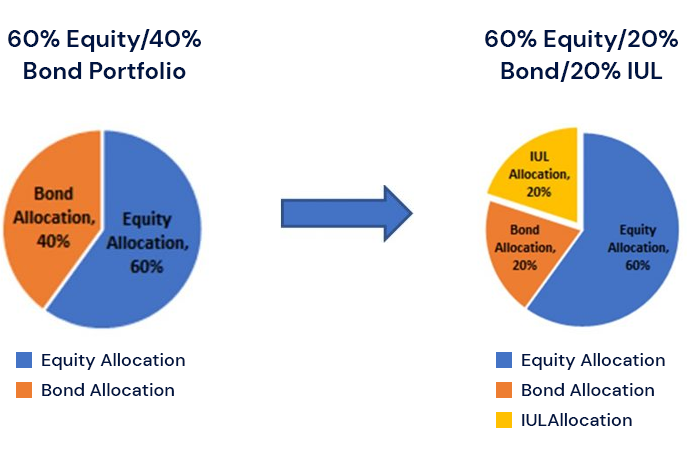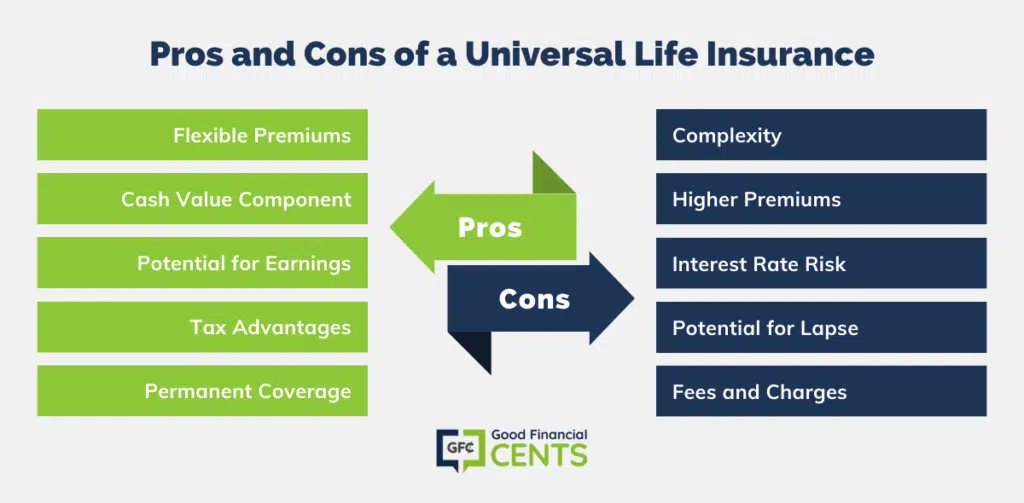All Categories
Featured
Table of Contents
Do they compare the IUL to something like the Lead Overall Supply Market Fund Admiral Shares with no load, a cost proportion (EMERGENCY ROOM) of 5 basis factors, a turnover ratio of 4.3%, and a remarkable tax-efficient record of circulations? No, they compare it to some dreadful actively taken care of fund with an 8% tons, a 2% EMERGENCY ROOM, an 80% turn over proportion, and a terrible document of short-term funding gain distributions.
Shared funds commonly make annual taxable circulations to fund proprietors, even when the value of their fund has decreased in value. Mutual funds not only call for earnings coverage (and the resulting annual taxation) when the mutual fund is increasing in value, but can additionally impose earnings taxes in a year when the fund has decreased in worth.
You can tax-manage the fund, harvesting losses and gains in order to minimize taxed distributions to the financiers, yet that isn't somehow going to change the reported return of the fund. The possession of common funds might call for the common fund proprietor to pay approximated taxes (ffiul insurance).

IULs are easy to position so that, at the owner's fatality, the beneficiary is exempt to either revenue or estate tax obligations. The same tax reduction techniques do not work nearly as well with common funds. There are many, commonly expensive, tax obligation catches related to the moment trading of mutual fund shares, traps that do not put on indexed life insurance policy.
Chances aren't very high that you're going to be subject to the AMT due to your common fund distributions if you aren't without them. The remainder of this one is half-truths at best. For circumstances, while it is true that there is no revenue tax due to your successors when they inherit the proceeds of your IUL plan, it is also true that there is no revenue tax due to your heirs when they acquire a shared fund in a taxed account from you.
Gul Policy
There are far better methods to avoid estate tax concerns than getting financial investments with reduced returns. Mutual funds might trigger income tax of Social Safety benefits.

The growth within the IUL is tax-deferred and may be taken as free of tax revenue using loans. The policy owner (vs. the mutual fund manager) is in control of his/her reportable income, thus enabling them to minimize or perhaps eliminate the tax of their Social Safety and security advantages. This set is excellent.
Right here's one more marginal concern. It's true if you purchase a common fund for state $10 per share right before the circulation day, and it disperses a $0.50 circulation, you are after that mosting likely to owe tax obligations (most likely 7-10 cents per share) despite the truth that you have not yet had any type of gains.
Yet in the end, it's really concerning the after-tax return, not just how much you pay in taxes. You are going to pay even more in taxes by utilizing a taxable account than if you buy life insurance. Yet you're likewise possibly going to have even more money after paying those taxes. The record-keeping requirements for possessing shared funds are dramatically extra intricate.
With an IUL, one's documents are kept by the insurer, duplicates of annual declarations are mailed to the proprietor, and circulations (if any type of) are totaled and reported at year end. This is also sort of silly. Certainly you ought to keep your tax records in case of an audit.
Tax Free Retirement Iul
All you have to do is shove the paper into your tax folder when it shows up in the mail. Hardly a reason to purchase life insurance policy. It resembles this person has never purchased a taxable account or something. Common funds are generally part of a decedent's probated estate.
On top of that, they go through the delays and expenditures of probate. The profits of the IUL plan, on the various other hand, is constantly a non-probate circulation that passes beyond probate straight to one's called recipients, and is consequently exempt to one's posthumous financial institutions, unwanted public disclosure, or similar delays and costs.
Medicaid disqualification and life time income. An IUL can provide their proprietors with a stream of income for their whole life time, no matter of exactly how long they live.

This is beneficial when arranging one's events, and converting possessions to revenue before an assisted living home confinement. Common funds can not be transformed in a similar fashion, and are often taken into consideration countable Medicaid assets. This is another foolish one supporting that bad people (you understand, the ones that need Medicaid, a federal government program for the bad, to pay for their retirement home) should make use of IUL rather of mutual funds.
Fixed Indexed Universal Life Insurance Reviews
And life insurance coverage looks awful when contrasted rather versus a retirement account. Second, people who have cash to get IUL over and past their pension are mosting likely to need to be dreadful at managing cash in order to ever get approved for Medicaid to pay for their nursing home costs.
Persistent and incurable health problem motorcyclist. All plans will certainly enable a proprietor's very easy accessibility to cash money from their plan, typically forgoing any abandonment penalties when such individuals experience a serious health problem, require at-home care, or become restricted to an assisted living home. Mutual funds do not supply a comparable waiver when contingent deferred sales costs still put on a shared fund account whose proprietor requires to offer some shares to fund the expenses of such a keep.
Iul For Retirement Income
You get to pay even more for that advantage (cyclist) with an insurance coverage policy. What a good deal! Indexed global life insurance policy gives survivor benefit to the recipients of the IUL proprietors, and neither the proprietor neither the recipient can ever before shed money because of a down market. Common funds supply no such warranties or survivor benefit of any kind.
I absolutely don't need one after I get to economic independence. Do I want one? On standard, a buyer of life insurance pays for the true price of the life insurance benefit, plus the costs of the plan, plus the earnings of the insurance firm.
Iul For Retirement
I'm not totally certain why Mr. Morais threw in the whole "you can't shed cash" once again here as it was covered fairly well in # 1. He simply wished to duplicate the best marketing factor for these points I intend. Again, you don't lose nominal bucks, however you can lose genuine bucks, in addition to face major possibility price because of low returns.

An indexed global life insurance policy plan proprietor might trade their plan for an entirely various plan without setting off earnings taxes. A common fund proprietor can not relocate funds from one mutual fund business to another without selling his shares at the former (thus causing a taxable event), and repurchasing brand-new shares at the latter, frequently subject to sales fees at both.
While it holds true that you can exchange one insurance coverage plan for one more, the reason that individuals do this is that the initial one is such a dreadful policy that also after purchasing a new one and experiencing the early, unfavorable return years, you'll still appear ahead. If they were marketed the appropriate policy the very first time, they shouldn't have any wish to ever exchange it and experience the very early, unfavorable return years again.
Latest Posts
Iul Explained
Universal Life Insurance For Business Owners
Indexed Universal Life Insurance Quotes